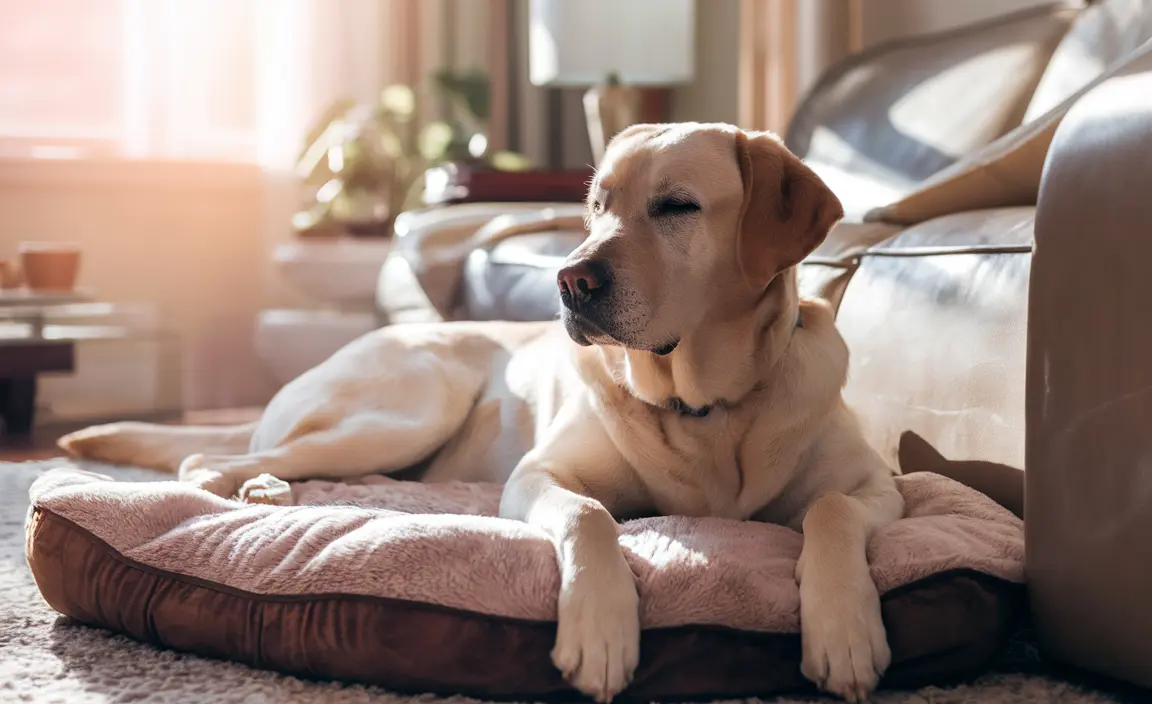Dogs are known for their love of sleep, but have you ever wondered just how much rest our furry friends actually need? Understanding your dog's sleep patterns is crucial for their overall health and well-being. From playful puppies to lazy lounging seniors, dogs have fascinating and varied sleep requirements that might surprise even the most devoted pet owners.
In this comprehensive guide, we'll explore the intricate world of canine sleep, diving deep into how long dogs sleep, what influences their rest, and why their sleep patterns are so unique.
How Much Do Dogs Sleep Throughout Their Life?
Puppy Sleep: Growth and Development
Puppies are sleep champions, often snoozing up to 18-20 hours a day. This extensive sleep isn't laziness – it's a critical part of their growth and development. Young dogs are constantly processing new information, building muscle, and developing their brains, which requires tremendous energy. Their sleep is broken into multiple naps throughout the day, helping them recharge and grow.
Adult Dogs: Balancing Activity and Rest
Adult dogs typically sleep between 8-14 hours daily, with most averaging around 12-14 hours. Unlike humans, dogs follow a polyphasic sleep pattern, meaning they sleep multiple times throughout the day and night. Their sleep cycles are shorter, lasting approximately 20-45 minutes, and include light sleep, deep sleep, and REM (Rapid Eye Movement) stages.
Factors Influencing Dog Sleep Patterns
Breed and Size Matters
Not all dogs sleep the same amount. Larger breeds like Great Danes and Mastiffs often require more sleep, sometimes up to 18-20 hours daily. In contrast, smaller and medium-sized breeds might need only 10-14 hours. This variation is linked to metabolism, energy levels, and overall physical characteristics.
Age and Activity Level
A dog's age significantly impacts their sleep needs. Senior dogs, much like puppies, tend to sleep more due to reduced energy and potential age-related fatigue. Working dogs or those with high-energy lifestyles might sleep less, while more sedentary dogs could spend more time napping.
Understanding Dog Sleep Cycles
The Science of Canine Rest
Dogs experience different sleep stages similar to humans, but with notable differences. Their REM sleep is particularly fascinating – during this stage, dogs might twitch, make small noises, or appear to be dreaming. This stage is crucial for mental and physical recovery, helping dogs process daily experiences and maintain cognitive health.
Night vs. Day Sleep
Interestingly, approximately 75% of a dog's sleep occurs at night, with daytime naps filling the remaining hours. This pattern closely mirrors their domesticated lifestyle and alignment with human schedules.
When to Be Concerned About Your Dog's Sleep
While variations in sleep are normal, sudden significant changes could indicate underlying health issues. If your dog starts sleeping dramatically more or less than usual, it's wise to consult a veterinarian. Consistent monitoring of sleep patterns can help detect potential health problems early.
Tips for Optimizing Your Dog's Sleep
- Create a quiet, comfortable sleeping environment
- Maintain a consistent daily routine
- Provide appropriate exercise to regulate energy levels
- Use comfortable, supportive bedding
- Minimize disruptions during sleep times
Frequently Asked Questions
How many hours do dogs sleep in a day, and does it vary by age?
Dogs sleep between 8-20 hours daily, depending on their age. Puppies and senior dogs sleep the most (18-20 hours), while adult dogs average 12-14 hours.
Why do puppies need so much sleep compared to adult dogs?
Puppies require extensive sleep for crucial growth and development processes, including muscle building, brain development, and energy conservation.
What factors, such as breed and activity level, affect a dog's sleep patterns?
Breed size, age, activity level, and individual health significantly influence a dog's sleep duration. Larger breeds typically sleep more than smaller, more active breeds.
How can I establish a healthy sleep routine for my puppy?
Provide a consistent sleep schedule, create a quiet sleeping area, ensure regular exercise, and avoid disruptions during rest times.
Is it normal for senior dogs to sleep more than younger adult dogs, and when should I be concerned?
Increased sleep in senior dogs is normal due to reduced energy. However, sudden dramatic changes in sleep patterns warrant a veterinary consultation to rule out health issues.






